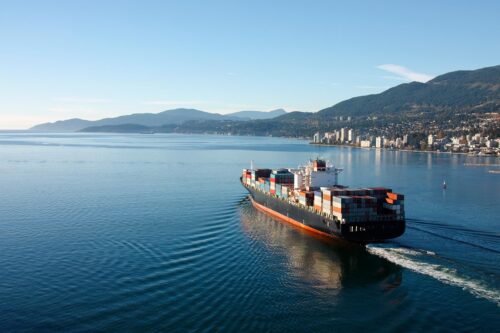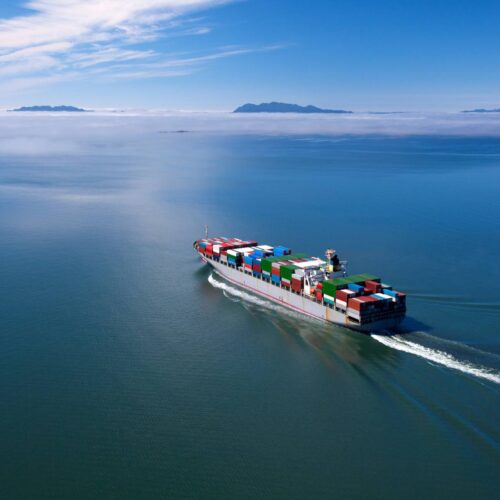
Jumpstarting Decarbonization of the Maritime Shipping Sector
Implementing a book and claim system to shipping could greatly accelerate the sector’s decarbonization.
Shipping is the backbone of international trade and the most efficient way to move goods, generating lower emissions than any other transport sector. However, shipping has few ways to achieve the required emissions reductions in the timeframe proposed by the Intergovernmental Panel on Climate Change (IPCC). Despite some options such as improvements in vessels’ energy efficiency, the key measure to decarbonize the sector is the use of alternative fuels. This will require investment through the entire value chain from fuel production through refueling (known in the shipping sector as bunkering) infrastructure to changes in vessels’ design and propulsion.
Fuel switching presents the classic problem of the chicken and the egg. Without a stable and accessible supply of fuel, shipowners will not make the investment to retrofit or change the current fleet. Likewise, fuel producers and ports will not invest in low-carbon fuel production and bunkering without having a clear signal of growing demand.
This is critical since alternative fuels cost more than conventional fuels and fuel costs represent a large portion of ocean freight rates. However, those costs could be recouped elsewhere: a 2022 survey by BCG found that 82 percent of consumers are willing to pay a premium for zero-carbon shipping. This expressed willingness is, however, not a sufficiently strong signal to motivate investments in higher-cost fuels. It lacks actual commitment, specific price points, and specific locations.
Two barriers for cargo owners to be more concrete in their demand are firstly the challenge of obtaining assurance related to the sustainability attributes of the fuel (e.g., emissions) from the feedstock to the bunkering facility and secondly the fragmentation of their cargo across shipping lines – even if a single cargo owner is willing to pay a premium for all their shipments, in many cases this only corresponds to a fraction of the total cargo on a particular route, not to mention all the routes for a particular vessel.
One solution to this problem is the use of a chain of custody model called “book and claim,” in which the administrative flow is not connected with the physical flow of the products. Applied to the problem described above, a book and claim system allows the decoupling of fuel’s attributes (e.g., emission intensity) from the physical value chain, while still ensuring that real investments are made to produce low-emission fuels. This would enable transactions of a digitalized version of those attributes to:
- Signal to fuel producers of the potential demand, overcoming physical fuel supply’s constraints
- Channel cargo owners’ premiums to support investments in retrofitting or changing fleets
- Provide attribute and transaction traceability to generate trust and enhance the system’s acceptance
Capturing key attributes of the fuel and transport activity and embedding them into a certificate is a complex task, even if sophisticated tools like digital tokens are used. One of the main challenges is ensuring the right amount of trust among users and stakeholders. A great portion of the work for designing a book and claim system is determining the attributes that represent the physical flows and how to ensure that those are accurately collected by the system’s users, in this case, shipowners, and operators.
Furthermore, this data processing should be accompanied by robust verification processes that ensure the consistency, accuracy, understandability, and comparability of the emission and transport activity measures used by the system’s users. Once users trust the tokens and what they represent, the challenge is to establish clear and enforceable rules on the conditions under which tokens can be generated, exchanged, and claimed.
Despite the complexity, the implementation of this type of chain of custody system has had a tremendous impact on decarbonizing other sectors such as electricity and aviation, especially in the early stages of establishing a differentiated market. RMI has been deeply involved in the aviation sector through the development of the Sustainable Aviation Fuel Registry and the Sustainable Aviation Buyers Alliance. RMI is now working with multiple partners in the maritime sector, such as the Maersk Mc-Kinney Moller Center for Zero Carbon Shipping, Danish Shipping, and Maersk Oil Trading, to design a book and claim system that creates a trusted and global platform for tracking and exchanging greenhouse gas (GHG) emissions and therefore accelerating decarbonization.
Through an initial collaboration funded by the Danish Maritime Fund, two documents have now been released: The first document is the “Maritime Book & Claim System Overview,” which aims to introduce the main elements of the system and how they work together to address some of the decarbonization challenges the maritime industry faces. The second is a background paper, “Maritime Book & Claim: Design decisions and justifications,” describing the system’s building blocks: chain of custody procedures, market rules, IT infrastructure, and governance.
The design of the system will be refined in the following months based on the feedback from all maritime stakeholders (shipowners, operators, forwarders, and cargo owners) in preparation for the next development phases, which include a pilot expected to commence at the end of 2023.
We welcome all feedback, please reach out to us if you want to deep dive into the system. We anticipate that we will be identifying stakeholders for the pilot in the following months, please contact the authors, Aparajit Pandey and Oscar Hernandez if you want to participate.
In addition, Maersk Mc-Kinney Moller Center for Zero Carbon Shipping will host a webinar to discuss the main elements of the system and its impact on the overall decarbonization strategy of the sector. Join us on May 4th and learn:
- What Book & Claim is and the value it can bring to the maritime industry
- The components and functionality of the system we have designed
- The future steps for our Book & Claim project
Shipping’s climate impact is undeniable, and we are dedicated to finding a clean, sustainable solution. This project is a first step toward decarbonizing a crucial sector of the global economy. We invite you to navigate that future with us.

